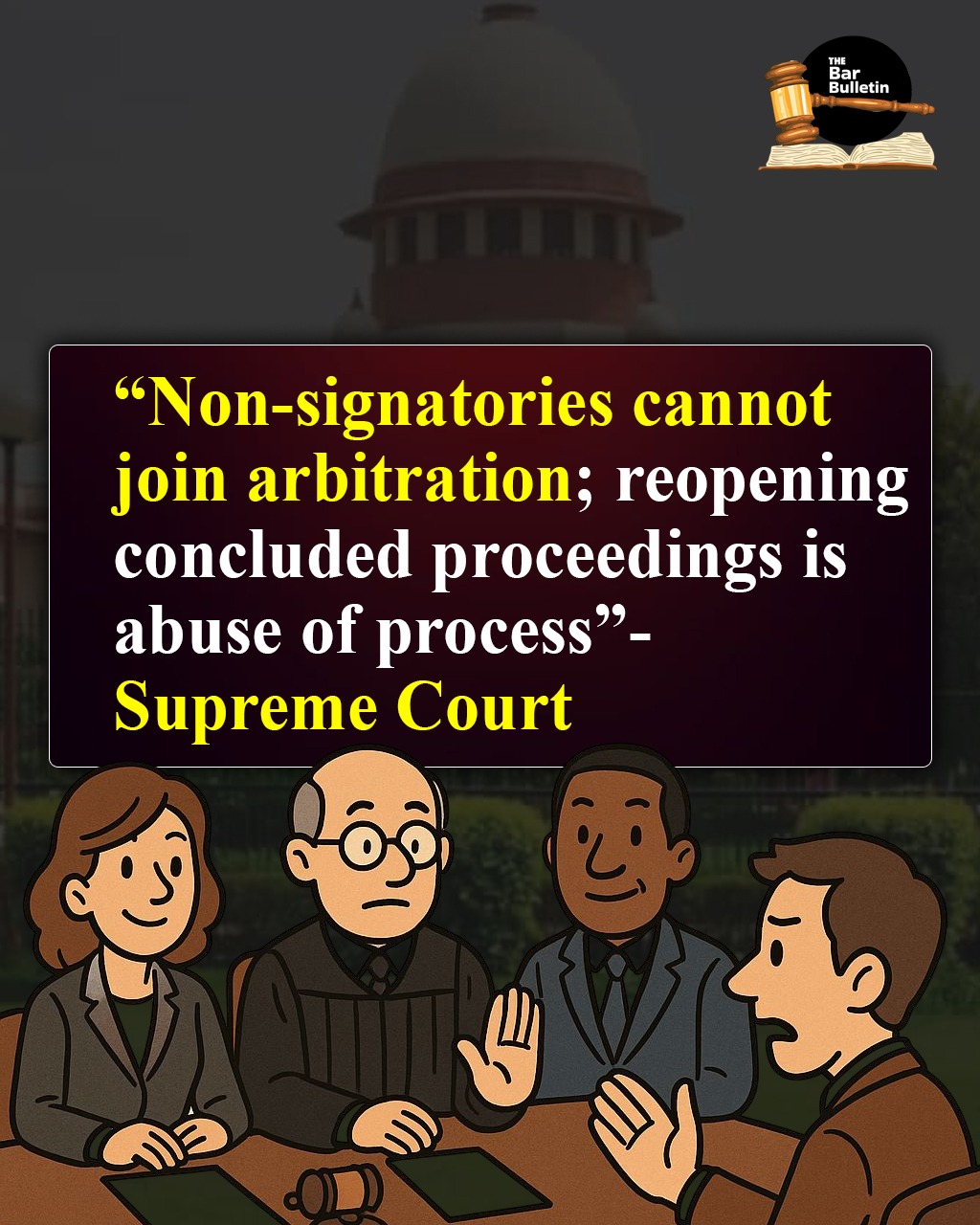The Supreme Court on August 13, 2025 set aside a Delhi High Court order that had permitted non-signatories to remain present during arbitral proceedings. A Bench of Justices P.S. Narasimha and Atul S. Chandurkar held that arbitral awards bind only the parties to the arbitration agreement and those claiming under them. And so, permitting strangers to attend would violate Section 42A’s mandate of confidentiality.
The case arose between the Appellant and the Respondent over disputes stemming from a family settlement (2015, formalised in 2019). Here, Rahul Gupta, son of the Appellant was deemed a non-signatory to the settlement and had sought intervention in arbitration proceedings under Section 11(6) of the Arbitration and Conciliation Act, 1996. His initial request was rejected when an arbitrator was appointed in March 2024. However, the Delhi High Court later allowed him and associated companies to remain present in the arbitration, citing earlier undertakings.
The Supreme Court clarified that once an arbitrator is appointed under Section 11(6), the Court becomes functus officio or the inability of the courts to mandate their authority, limiting their capacity to issue further ancillary directions. Judicial intervention is limited by Section 5 of the Act and Section 151 CPC cannot be invoked to expand jurisdiction. Non-signatories have no statutory right to participate or observe arbitration, and any attempt to re-open concluded proceedings amounts to abuse of process.
Accordingly, the impugned order dated 12 November 2024 was quashed. The appeals were allowed with costs of ₹3,00,000 imposed on the respondents, payable to the Supreme Court Advocates-on-Record Association.
Appearances:
For Appellants: Mr. C. Aryama Sundaram, Senior Advocate; Mr. V. Giri, Senior Advocate
For Respondents: Mr. Amit Sibal, Senior Advocate; Mr. J. Sai Deepak, Senior Advocate; Ms. Bansuri Swaraj, Advocate



